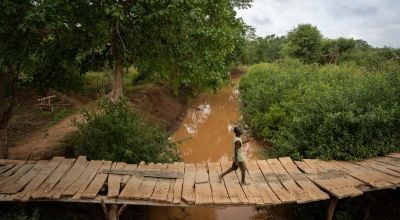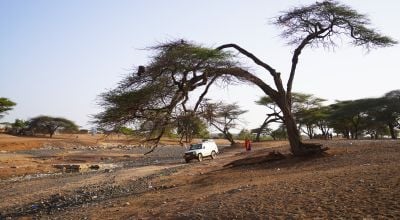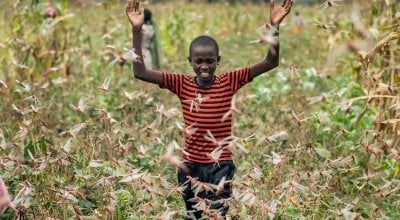
Read our 2024 annual report

Knowledge Hub
The women of Marsabit build resilience against drought
Marsabit, Kenya’s largest county, sits in the north of the country and hosts a population of over 300,000 people. The county is prone to unpredictable weather conditions and has been hard hit by the recent drought. Concern is working there as part of the Resilience Consortium, funded by European Union Humanitarian Aid (ECHO), to strengthen communities and build resilience against drought.
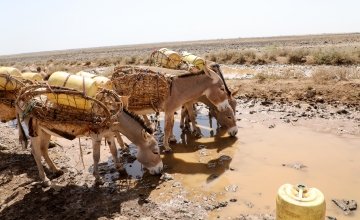
Mother of six, Kulla Dida, was born and raised in Marsabit County. Her family are pastoralists and have been severely affected by the recent drought. The lack of rainfall has diminished their grazing land, their livestock have deteriorated and Kulla and her husband struggle to feed their six children.
Thankfully, Kulla and her husband took part in Concern’s resilience programme which enabled them to better cope with the effects of drought. Along with other community members, they received training on how to manage their grazing land more effectively and received KES 200,000 (€1,800) which was used to fence an area for livestock agreed by the community.
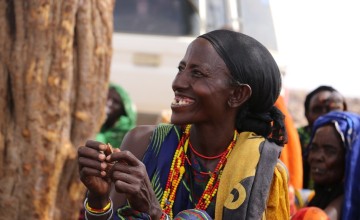
Strengthening response to drought
When the drought became really severe last December, Kulla and her husband took part in a Concern programme where beneficiaries were encouraged to sell their livestock to neighbours who were in need of food, and in return they received a cash transfer from Concern. They sold a goat at a community meeting and in return received a KES 3,000 (€26) cash voucher.
Thanks to the resilience programme, Kulla and her neighbors feel more confident in their ability to withstand the impact of the drought:
“Now we are able to first look around for what we have as a community and how we can use it to make things better for ourselves instead of always depending on outsiders to solve our problems”, said Kulla.
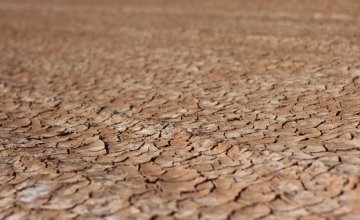
“I feel the pain of my children”
Tumme has also been affected by the drought in Marsabit. She is a mother of six, and due to her husband’s age, she is the sole breadwinner to a household of eight people. She too is running out of options;
“As a mother I feel the pain of my children when they go without food because of the drought. When they are hungry, they cry to me for food. I have even gone to ask for food items on credit because I cannot stand seeing the children cry,” says Tumme.
As a pastoralist, Tumme’s main source of income is her livestock, but sadly the drought has taken ten out of her 20 goats. Additionally, her goats are no longer producing milk and as a result she can’t make any income from them.
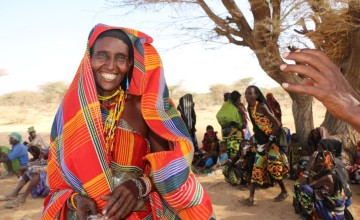
Emergency response cash transfer
Thankfully, Tumme and her husband are taking part in Concern’s Resilience programme and are beneficiaries of Concern’s emergency response cash transfer intervention. This cash enables Tumme and her family to meet their immediate needs such as water, food and health care, which they struggled to afford previously.
Looking to the future
Feeling equipped to deal with the current drought, Tumme and Kulla are confident in their ability to cope with future shocks and the two mothers are no longer afraid to plan for the future. Tumme says that she would like to invest in a shop to help her community have easier access to essentials such as cereals and vegetables. Kulla states;
“It is my hope to see my village develop, I want to see businesses opening up and not closing down every time there is a drought. I want our children to go to school without dropping out.”
Collaborating for a strengthened response
The Resilience Consortium is funded by the European Union Humanitarian Aid (ECHO) and is made up of Concern Worldwide, Transparency International-Kenya and Oxfam in Kenya. Through collaboration, this inter-organisational consortium supports pastoralist communities and equips them with knowledge and tactics on how to prepare for, respond to and mitigate against external shocks, including drought.
Based on case studies written by: Joyce Kabue, Media and Communications Advisor, Oxfam in Kenya.
Learn more



